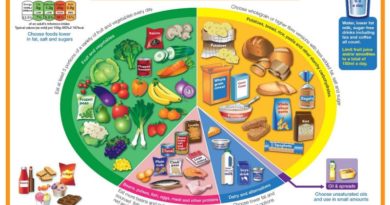Kellogg’s & Netmums Part II
This is a follow up to this post. The original post resulted in a number of comments from angry mums who were appalled at the Netmums’ support for Kellogg’s and the general outrage led to this article in the Mail on Sunday on 22nd September 2013.
The Mail took an interesting (unusual?) angle about one particular mum allegedly being censored by Netmums – saying that her anti-Kellogg’s comments were moderated out whenever she put them on the Netmums site.
The story so far
In the 2008 Kellogg’s annual report they announced in the opening statement “We are aggressively embracing digital media, which affords an efficient, cost-effective way to target specific audiences, providing an excellent platform for developing our brands… In addition, we are successfully building relationships with moms around the world ...”
Targeting ‘moms’ and digital media. Surely an organisation like Netmums would see through that.
Kellogg’s then do some research about breakfast skipping and publish it in the journal of the friend-to-the-fake-food-industry: The British Nutrition Foundation. Members and sustaining members here and here.
The study isn’t about poverty – it’s about breakfast skipping. The bigger story has already been covered – the 10-15 year old girls skipping breakfast because they are dieting.
Another bigger story is that one in three final year primary school children are overweight or obese – may I suggest because of sugary cereals and other fake foods, which have come into the human food chain in the blink of an eye in terms of evolution.
In the first post, I could not believe that Siobhan Freegard could have been naive enough to fall for what had been a Kellogg’s promotion from start to finish.
It turns out that I was the naive one…
Netmums and Kellogg’s have a commercial relationship…
… and have done so for three years. Netmums refused to answer the Mail on Sunday’s question about how much the deal was worth.
And that’s the story. This is a commercial arrangement between two organisations for mutual benefit. Netmums gets money; Kellogg’s gets access to mums to make more money and money makes the world go round.
This was not about Netmums falling for a story about poverty. The Hoyland article was published in 2012 – they’d already been in bed together for two years.
The love-in started in September 2010 with ‘Greg’, the MD of Kellogg’s, getting direct access to mums. If you get a moment – do look at some of the comments. They are a depressing mix of falling for Greg’s invitation to name your favourite Kellogg’s concoction and not seeming to care about the sugar content of children’s cereals to more reassuring challenges about the sugar in the products, the price of Kellogg’s vs. own label, the number of ingredients and clearly peddling the products to children.
Greg’s replies start at #78 and the first comment made is the standard Kellogg’s defence. It was used when the Children’s Food Campaign challenged Kellogg’s about the Coco-pops advert. When I wrote to Kellogg’s to support the Children’s Food Campaign with this particular campaign their reply to me was: “When it comes to sugar, one portion of Kellogg’s Coco Pops has just 10.5g – approximately two teaspoons. To put this into context: a portion of fruit yoghurt contains 20g of sugar and toast and jam has 13g.”
This is their standard reply and Greg knows it. In comment 78 Greg says “Firstly, I thought you might appreciate the facts on sugar. The media coverage of breakfast cereals isn‘t always balanced so I think it‘s important you get the truth. To put things into perspective, a serving of cereal, like Coco Pops and Frosties, contains just two teaspoons of sugar which is less than a fruit yoghurt or jam on toast.”
Don’t try to defend the sugar content because it is indefensible. Compare it to other products that contain sugar to show that it is equally unhealthy – with the implication being that it is equally healthy.
Greg then gets the free rein to say how much calcium is in a serving of Kellogg’s & milk – I think you’ll find that the milk provides the calcium Greg (actually they’ve added calcium to the cereal as well – a high calorie vitamin tablet in effect). They’ve also added other vitamins to cereals because there are none left naturally by the time the sugar and starch have been processed together. And so on…
Give a child a breakfast
Back to the #giveachildabreakfast campaign, because it was this that first attracted my disbelief. Siobhan Freegard defends her position on this here.
Netmums: “With regard to the Give a Child a Breakfast campaign, Netmums – and I personally – chose to become involved in this campaign as we have seen first-hand the rise of families unable to feed their children in the UK…”
Me: This isn’t about poverty. Yes there are children going to school without having eaten breakfast. There are many different reasons for this – not least girls worried about their weight. Netmums should be worried about this. One in three final year primary school children is obese or overweight. Netmums should be worried about this. Netmums and Kellogg’s are quoting statistics for breakfast skipping, engineered by Kellogg’s – the Kellogg’s study was not about poverty.
If this were about poverty Netmums would donate their fee from the Kellogg’s commercial relationship and Kellogg’s would ban their own products from any breakfast clubs because more children could be fed cheaper and better on eggs and oats.
Netmums: “There is no national register for hungry children – so it is easy for authorities and the affluent to assume it isn’t really happening, to look away. But there is a growing pile of authoritative research showing it is a very real problem. I am happy to support a business like Kellogg’s who are investing in further research and, actually doing something to help.”
Me: Now you are being naive. Kellogg’s make breakfast cereals. Breakfast skipping, for whatever reason, can impact their sales and profits. Kellogg’s have a vested interest in coming up with studies to make sure that people don’t skip breakfast – for whatever reason.
Here’s a Kellogg’s PR release, sorry “factsheet”, all about why we shouldn’t skip breakfast. At the end – there’s all that evidence to which you may be referring. I just took the last name on the list – A. P Smith – as it appears quite a few times. Turns out Andrew P. Smith is working in the School of Psychology in Cardiff University. Here’s a paper he published in 2010 all about the benefits of breakfast. Ignore the article – look first at the “Acknowledgements” on page 6 “The present research was carried out with the financial support of the Kellogg Marketing and Sales Company Limited.” I bet it was! This took five minutes – if you’ve got more time, you may like to look at the other ‘research’ being funded by Kellogg’s to try to ensure that breakfast skipping is eliminated.
The ethical response
I was approached in October 2012 as follows – by a dietician (love them!) – to try to help the cereal industry:
Dear Zoe
I’m a freelance dietitian working on a project to set up stakeholder meetings for the Association of Cereal Food Manufacturers (ACFM) which represents UK breakfast cereal manufacturers.
ACFM are keen to understand how breakfast cereals are viewed by key opinion leaders, such as yourself, and to gather opinions about what they should be doing in future as an industry group. They have also commissioned a literature review and would like to elicit views on the scientific evidence.
I was wondering if you would consent to meet ACFM representatives for an hour at a time and place most convenient for you. You would also be sent a copy of the literature review for comment.
Do let me know if you are agreeable to this in principle. Look forward to hearing from you.
Carrie
My reply was as follows:
Hi Carrie
I’m the wrong person to ask here. I will never do anything to help any fake food manufacturer. I loathe fake food associations and the companies they represent. I abhor the shameless way in which they market (in this case) sugary cereal to children, putting their profitability above the obesity epidemic, type 2 diabetes and other things to which they contribute. What I would love them to do in the future as an industry group is to go out of business.
We should be eating eggs for breakfast – not concoctions of sugar and flour, so deficient in natural nutrients that fortification is necessary (and then disingenuously promoted as healthy).
Best wishes – Zoe
If only Netmums had replied similarly.




So brilliant to see both Kellog’s and Netmum’s exposed for exploitation and profits. Well done!
The problem is with all that sugar, they are both obese and hungry. Misery loves (the big food) company.
Those I know who limit carbs are thin and rarely hungry. I don’t eat breakfast because I’m not hungry until late in the day. I think if I started eating breakfast, I wouldn’t eat dinner (a few times I’ve tried it and it is what happened).
Way to go, Zoe!
Keep up the good work.